|
What does it mean to be a faithful Catholic? We are often quick to answer this question with things like Mass attendance, frequent confession, respect for all life, serving the poor and vulnerable, and advocating for those without their own voices. In other words, we might answer this question with action verbs, or phrases that suggest doing. However, identifying as a Catholic requires just as much being as doing; as Catholics, we are called to be in right relationship with God, others, and ourselves. Being in right relationship means that in all parts of our lives, there is an order to what we do, love, desire, value, and move towards; this order is one that is rooted in God, sustained by constant conversion to him, and ultimately fosters lasting communion with him in this life and the next. There are many things in our lives that prevent us from being according to this pattern and order. For many of us, things like tragedy, addiction, animosity, violence, mental illness, polarization, and trauma have weakened our trust in God and the goodness of others. Our hearts can be exhausted by divisions within our own families, numerous transitions in our careers or geographical locations, failed plans and dreams, and the restlessness that comes with the seasons of waiting in our lives. Sometimes, we find that our hearts have become worn down and afraid in all that life has asked us to carry. Like illness or a disease, leaving these wounds of the human condition untreated poses a hazard to our being. Trying to live out our faith without seeking some form of psychological and emotional healing for these wounds causes our views of ourselves, God, and others to become distorted, preventing order and harmony from forming in our lives. Untreated emotional and psychological injuries and pain show themselves in the ways in which we seek to serve God and others. We sometimes put up “walls” around our hearts and push others away because we’ve been so damaged by close relationships. We might become obsessively self-interested because we see our value and dignity only in relation to our careers and material success. We might see God as angry, malevolent, and seeking retribution because we haven’t forgiven ourselves for our past sins or mistakes. All of these feelings and responses are part of being human. Thankfully, because they are part of being human, they can be healed and redeemed. This is why it is crucial to form ourselves not only spiritually, but also through emotional and psychological healing. The parts of us that have a large role in being - our emotions, mental state, and psychological health - are invaluable to living out our vocations to holiness. We cannot give life, love, and mercy to others if we don’t first have a sense of those things within our own selves. Certain tools can help with this type of human formation: conversations with trusted and wise friends, support from a mentor, spiritual direction, counseling, and therapy. As Catholics, it is important to reflect often on the journey of our lives, look at the cuts and scrapes we’ve acquired along the way, and participate in God’s healing by seeking tools that foster our ability to be. It is through the nurturing of our being that we are then able to bring life through our doing. As Catholics, we are part of a Church that calls us to “go forth” to serve God and others. Individually within our hearts, what kind of place are we “going forth” from? One that is broken and acts out of insecurity, self-interest, anger, or pain? Or one that is undergoing healing, characterized by a desire to live in the freedom of God with others? What kind of healing might we be called to seek?
0 Comments
Today ends a yearlong celebration of the Jubilee of the 200th Anniversary of the Ordination to the Priesthood of St. Vincent Pallotti. In celebrations in 54 countries around the world and beyond, Pallotti’s foundation, the Union of Catholic Apostolate, is offering thanks for his life of selfless ministry. Ordained on May 16, 1818 as a priest of the Diocese of Rome, Pallotti served his entire life in the city, especially through pastoral care of the poor, sick, prisoners, and dying, spiritual direction, education, and sacramental ministry, particularly the Eucharist and Penance. Through reviving faith and rekindling charity as a priest always in collaboration with others, he was inspired 17 years later to found an association of lay people, religious and clergy that would assist the Church’s missionary efforts, revive the faith of Catholics, and live universal charity. He called it the Union of Catholic Apostolate. Only after almost 20 years of priestly ministry did he form a community of priests and brothers as well as a community of sisters. Both communities were small by the time of his death in 1850, but today are throughout the world. Fr. Jacob Nampudakam, S.A.C., the Rector General of the Society of the Catholic Apostolate (Pallottine Fathers and Brothers) in his book, The Spirit of the Priesthood according to St. Vincent Pallotti, summarizes well the way in which Pallotti went about his priestly ministry: “Vincent Pallotti from the very beginning of his priestly life, committed himself to live out all of the implications of the ministerial priesthood and revive its evangelical spirit. He interiorized the priesthood as a following of Jesus Christ and expanded his vision and put it into practice by means of priestly activities” (9). Pallotti in and through his priestly ministry lived the life of an apostle, a follower of Christ who is sent out into the world to share the Gospel in word and deed. As apostles, we are not alone, as Pope Francis notes: “I entrust all of you to the protection of Mary Most Holy, whom St. Vincent Pallotti venerated especially as Queen of Apostles. Her good example of apostolic zeal and perfect charity, invites us to pray without ceasing to invoke the gifts of the Holy Spirit upon the apostles of today, so that the Gospel of her Son can be proclaimed in every part of the world.” May the Charity of Christ urge us on! In Christ, Apostle of the Eternal Father, Fr. Frank
Today we celebrate the fifth anniversary of Pope Francis’ pontificate. In these short years, Pope Francis has done much to continue the work of his predecessors in building a culture of evangelization and inviting each member of the Church to live out their baptismal call as missionary disciples. Several important Church documents have been released throughout his papacy, including Evangelii Gaudium, the Apostolic Exhortation on the Proclamation of the Gospel in Today’s World, Laudato Si’, the encyclical on Care for our Common Home, and Amoris Laetitia, a post-synodal Apostolic Exhortation on Love in the Family. Pope Francis has participated in two World Youth Days, made roughly 22 international apostolic visits, and has canonized 885 saints. He called for the Jubilee Year of Mercy from 2015-2016. I would like to celebrate the fifth anniversary of his election by sharing some quotes that characterize his papacy and capture its tone.
1. A Church on Mission "I prefer a Church which is bruised, hurting and dirty because it has been out on the streets, rather than a Church which is unhealthy from being confined and from clinging to its own security… More than by fear of going astray, my hope is that we will be moved by the fear of remaining shut up within structures which give us a false sense of security, within rules which make us harsh judges, within habits which make us feel safe, while at our door people are starving. -Evangelii Gaudium, 49 Pope Francis envisions a missionary church—one with open doors to welcome people in, but also for each of us to step out and bring the Good News of Jesus Christ to the world. As Christians, it can be tempting to remain within the safety of our parish and Church community. However, Jesus calls us to “go out to the nations” and encounter the hurting world. Pope Francis reminds us of this evangelizing spirit entrusted to us by Jesus Christ and challenges us to be a Church on mission. 2. The Inherent Dignity of Mankind and Creation “Our insistence that each human being is an image of God should not make us overlook the fact that each creature has its own purpose. None is superfluous. The entire material universe speaks of God’s love, his boundless affection for us. Soil, water, mountains: everything is, as it were, a caress of God.” -Laudato Si, 84 About two years into his papacy, Pope Francis released his encyclical Laudato Si’, focusing on our responsibility as stewards of creation. No other pope has dedicated an entire encyclical to the care of creation. In doing so, Pope Francis reminds us that all of the created world helps us to glimpse and better know God Himself. Mankind is the pinnacle of creation, made in God’s image and likeness. In Laudato Si’, Pope Francis reminds us of each person’s inherent dignity, made with his or her own purpose, gifts, and mission. 3. The Transformative Power of Christ’s Love “Jesus’ love goes before us, his look anticipates our needs. He can see beyond appearances, beyond sin, beyond failures and unworthiness…He sees beyond this, to our dignity as sons and daughters, a dignity at times sullied by sin, but one which endures in the depth of our soul. He came precisely to seek out all those who feel unworthy of God, unworthy of others.” – Homily at Plaza de la Revolución during his Apostolic Journey to Cuba At the heart of the Christian life is an encounter with Jesus Christ. His love is transformative, life-changing. We encounter Christ in prayer, the sacraments, the parish, in one another. However, we cannot overestimate the importance of our prayer life—of moments throughout each day in which we enter into dialogue with God, offer up our work and sacrifices, remember the needs of others, or give God praise. When we carve out time each day for prayer, we are better able to know the look of Christ that goes beyond the worldly way of seeing things into our dignity as sons and daughters of God. 4. The Role of the Church in the Christian Life "We cannot understand Christ without his Church, just as we cannot understand the Church without her spouse, Christ Jesus, who gave his life out of love, and who makes us see that it is worth the price.” -Prayer Vigil for the Festival of Families in Philadelphia I love this quote because it sums up the relationship between Christ and His Church. We cannot know Christ apart from the Church, just as the Church cannot exist without Christ. Christ founded the Church in order to be a place of encounter with Him through the sacraments and through one another. We come to more fully know the love of God in the life of each parish. How can we create communities of encounter in our various parishes? Is the light of Christ truly shining forth in our communities? 5. The Messiness and Joy of Family Life “I thank God that many families, which are far from considering themselves perfect, live in love, fulfill their calling and keep moving forward, even if they fall many times along the way. The Synod’s reflections show us that there is no stereotype of the ideal family, but rather a challenging mosaic made up of many different realities, with all their joys, hopes and problems.” -Amoris Laetitia, 57 Pope Francis speaks realistically of human life and love. The family, the domestic church, is not perfect. We are called to learn and grow in love throughout our entire lives, just as we are called to learn and grow in holiness. The family is the place where love is mastered and refined. It is the foundation of society and of the Church. Pope Francis calls families to journey joyfully on the path of love. He invites us not to fear our imperfection, but to keep moving forward in hope and joy. 6. Not Letting Fear Impact Vocational Discernment “The work of discernment identifies our fears and can then help us to overcome them, opening us to life and helping us to calmly face the challenges that come our way. For us Christians in particular, fear must never have the last word but rather should be an occasion to make an act of faith in God… and in life!” -Message for World Youth Day Panama In preparation for the 2018 Synod on Young People, the Faith and Vocational Discernment and World Youth Day 2019 in Panama, Pope Francis spoke of the process of discernment, especially for young people today. Fear is often at the heart of our actions—or inaction. Christians, however, have no cause for fear. As we discern God’s call for our life each day, let us place our trust in Him and act with courage and boldness. God has created us for a unique mission that only we can fulfill in His Church. Let us discern his will for us, as Pope Francis encourages, “trusting that he will lead us to a good end.” 7. The Importance of Contemplating and Encountering God’s Mercy “We need constantly to contemplate the mystery of mercy. It is a wellspring of joy, serenity, and peace. Our salvation depends on it.” -Misericordiae Vultus, Bull of Indiction for the Extraordinary Jubilee of Mercy Starting in 2015, Pope Francis instituted the first Jubilee Year of Mercy in the Catholic Church. Throughout this time, he invited the Church to contemplate once more the merciful gaze of the Father and experience God’s mercy in our lives. We cannot be merciful without first having personally experienced the mercy of God. I loved that as a Church, we dedicated a year to contemplating this great mystery. We know God as Father, Savior, Creator, Just Judge, and many other titles. But how often to experience His mercy, as evidenced in the parable of the Prodigal Son and in the story of Jesus meeting the Woman at the Well? 8. Our True Identity “That is our real ‘stature,’ our spiritual identity: we are God’s beloved children, always. So you can see that not to accept ourselves, to live glumly, to be negative, means not to recognize our deepest identity…God loves us the way we are, and no sin, fault or mistake of ours makes him change his mind…God counts on you for what you are, not for what you possess…In his eyes, you are precious, and your value is inestimable.” -Homily at World Youth Day Mass in Krakow At World Youth Day in Krakow back in 2016, Pope Francis reminded youth and young adults of an incredible universal truth : that our identity lies in being God’s children. In a world so often focused on our careers, material possessions, prestige, or online presence, Pope Francis gets to the heart of our identity as being completely loved by God. It’s easy to forget that we are loved simply because we exist. We all hold a valuable and irreplaceable space in God’s heart. By being most authentically ourselves, we are better able to fulfill our mission within His kingdom and become the saints He wants us to be. 9. Using Technology and Social Media Wisely “Communication has the power to build bridges, to enable encounter and inclusion, and thus to enrich society…Words can build bridges between individuals and within families, social groups and peoples. This is possible both in the material world and the digital world.” -World Day of Communication 2016 We live in a world saturated by social media, technology, and widespread communication. Used irresponsibly, these can isolate and distract mankind. Pope Francis encourages people today to use technology and social media in order to promote a culture of encounter and accompaniment. He challenges us to be “digital citizens” who are not afraid to use technology to spread the Gospel. 10. Being People “For Others” “Love has no alibi. Whenever we set out to love as Jesus loved, we have to take the Lord as our example; especially when it comes to loving the poor.” -Message for the First World Day of the Poor In 2017, Pope Francis called for the first World Day of the Poor—a day in which we act not only in word, but in deed in order to alleviate poverty and accompany those on the margins of society. Pope Francis encourages the world to give and not to count the cost, to love as God first loved us. In a culture of consumerism, we can easily forget to think about our neighbor or those less fortunate than ourselves. Pope Francis reminds us of the importance of giving freely, drawing near to the poor, embracing them, and being transformed through that process. Click here for free resources on Catholic Social Teaching. Question for Reflection: Do you have a favorite quote from Pope Francis’ papacy that’s not listed above? Share it in the comment section below and let us know why it’s powerful for you. Now you are Christ’s body, and individually parts of it. –1 Corinthians 12:27 I commute to work every day by train through Chicago’s “loop.” It’s the perfect place for people-watching. Recently, I was on a busy sidewalk when a woman who looked rather tired and disheveled pushed a stroller near the crowd with her child. Behind me were two very elegantly dressed women in a hurry. The woman with the stroller asked the passing crowd, “Can you spare some change for our next meal?” It’s a question that I’ve heard too often downtown. I felt a pang of sadness and guilt. Often, I am unsure how to respond. The women behind me continued on past her and began commenting: “What a horrible mother”; “Of course I’m not going to help her out. Why would I want to give her my money?” Those comments hurt even more than seeing this poor mother and child suffer. In the first letter to the Corinthians, St. Paul writes, “As a body is one though it has many parts, and all the parts of the body, though many, are one body, so also Christ. . . . If [one] part suffers, all the parts suffer with it; if one part is honored, all the parts share its joy.” The mother and her baby, the women behind me, and all those who are a part of my community of friends and family are of one body. As stated in Lumen Gentium, “By communicating His Spirit, Christ made His brothers, called together from all nations, mystically the components of His own Body. In that Body the life of Christ is poured into the believers who, through the sacraments, are united in a hidden and real way to Christ who suffered and was glorified.” We live as one with Christ and with one another even amidst the poverty, injustice, and messiness we experience. This letter from Paul to the early Church deepens their understanding of the Body of Christ and its physical makeup. Each person has a function within it which works alongside the other members and promotes the common good. As the Catechism of the Catholic Church notes, “The unity of the Mystical Body produces and stimulates charity among the faithful.” I often fall into the temptation of removing myself from a group who seems holier than me, those who are more involved in their community or are outspoken in ways that I’m not. I even tend to exclude myself from the community of pedestrians walking down the sidewalk. I forget that we make up the Body of Christ and that if others suffer, I suffer. If others rejoice, I rejoice. I also share a part of myself with each of them. One of my mentors once said, “Our goal is always to connect. Even if it’s uncomfortable, we are made for relationship.” As a Christian, I am called to notice those in the community around me and to connect with them. Mystici Corporis Christi, the encyclical from Pius XII, also outlines the meaning of being a part of the Mystical Body of Christ. “Each member of the Church, of the Mystical Body of Christ, if authentic, is integrally bonded in soul, and hopefully in heart, through the Incarnation, by the Spirit, with Jesus, Son of God, and son of Mary, divine and human,” wrote Msgr. Owen F. Campion. We are bonded in soul and heart because of Christ’s physical and spiritual sacrifice as the Son of God. We become whole in him and in relation to others. As members of the Church, we are called to be a family who loves and cares for others, even those outside of our communities. In all circumstances, the Body of Christ leads me to a holier life. When I am doubtful or uncertain, my faith community allows me to grow. When I’m overwhelmed, others will kindle the fire of faith within me. I fully experience joy when I experience it with others and share the Good News and the love of Jesus. I may do this differently from a trained hand who provides, or a speaker with a gifted tongue, but I’m using my gifts as a member of the Body of Christ. We are called to take part of this community through our unique identity with authenticity. I paused that day on my commute because of this mystical experience of community. I witnessed the pain of the poor mother and child on the Chicago sidewalk, and the harshness of the response of the two women who were walking near me. I became more aware of this truth in the wounds and challenging emotions I experienced. I feel pain because I am connected to all people in some way. Conversely, I can feel joy if I make small choices to build up the Body of Christ. St. Paul outlines this for us, and we hear it in St. Teresa of Avila’s words, “Yours are the hands, yours are the feet, yours are the eyes, you are his body. Christ has no body now on earth but yours.” We must pay attention like Jesus would, and love our physical and mystical body. Questions for Reflection: What unique gifts can I share with others as a member of the Body of Christ? How can I become more aware of the communities I live in? "Remember that the Christian life is one of action; not of speech and daydreams. Let there be few words and many deeds, and let them be done well." – St. Vincent Pallotti Blessings to all as we are about to celebrate the feast of St. Vincent Pallotti on January 22nd! Some may ask, “Who is that?” I am glad that you asked. St. Vincent Pallotti and his charism are the reason why the Catholic Apostolate Center exists. He was a priest of the Diocese of Rome in the first half of the nineteenth century. His ministry spanned the poor to popes. It did not matter what a person was, but who the person was, an image and likeness of God, the Infinite Love. He saw all people as gifted by God with talents that were meant to be shared. On January 9, 1835, St. Vincent Pallotti was inspired to found the Union of Catholic Apostolate, a collaborative association of lay people, religious, and clergy, who were called to assist in the missionary efforts of the Church through all apostolic methods and means, “revive, maintain, and increase the faith” of Catholics, and be an “institution of universal charity”. Over time, a community of priests and brothers and communities of sisters developed as well. Members of the Union of Catholic Apostolate are now in over 50 countries around the world. The Catholic Apostolate Center, a ministry of Pallotti’s community of priests and brothers, is a 21st century expression of his charism that works to revive faith, rekindle charity, and form apostles. Looking the other way when others were in need was not possible for Pallotti and his life calls all, particularly Catholics, to be more than simply passive participants in the Faith. Instead, we are called to be apostles, sent by Jesus Christ out into the world to spread the Gospel and charitably bring healing and consolation in the midst of brokenness and suffering. In many ways, it is fitting that most years (although, this year on January 27th) those who March for Life in the streets of Washington, D.C. are doing so on his feast day. The marchers not only give witness, but also voice to those who are voiceless, unborn children. The most vulnerable and in need were closest to the heart of St. Vincent Pallotti as he and his companions went into the streets of Rome to care for them day after day and night after night. On January 22, 1850, he died from a respiratory illness because he had braved the elements to continue his work after giving away his cloak to a poor elderly woman on a cold, rainy night. St. Vincent Pallotti understood well what Pope Francis teaches us today: “Jesus, the evangelizer par excellence and the Gospel in person, identifies especially with the little ones (cf. Mt 25:40). This reminds us Christians that we are called to care for the vulnerable of the earth” (Evangelii Gaudium, n. 209) We invite you to learn more about St. Vincent by downloading our Pallotti App, visiting our new Pallotti Portal, viewing this new video, or listening to this new podcast. May the Charity of Christ urge us on!
The story of Christmas illustrates that there are no perfect families (or parishes) but we can hope to be a holy one. Part of becoming a holy family at Christmas means turning our attention to the spiritually lost among our family and friends. Here are a few things to keep in mind as we look to welcome disconnected Catholics to our churches and homes this season. Make Room for the Lost and Lonely For some people walking through the church doors, the Christmas season is a difficult and lonely time, a reminder of the families they don’t have. How do we show hospitality to those without a human family? If you are on a church staff or volunteer, slow down and consider the place you are making for those who feel lost and alone. You could, for example, make sure that the elderly and handicapped are able to find seating appropriate to their needs. Or, personally invite those who are alone to join in any parish fellowship that might be happening after Mass. Perhaps you could even invite a few of these people to bring up the gifts during Mass. A special role in the Mass during this important liturgical season can show those who feel unloved how honored we are to have them as members of our parish family. The goal is not to expose or make a scene around these types of parishioners, but to consider their needs and communicate that they are valued. Make Occasional Visitors Feel Loved, Not Judged For those coming to church at Christmas for the first time in a long time, many already carry a mild feeling of guilt that they don’t go to church regularly and expect to feel a little judged. Let us welcome these occasional visitors with open arms and encourage them to return by modeling the joy of the Lord through our actions. Joy is persuasive. If we let the love of Christ beam through us this Christmas season it might just be enough to help these occasional visitors desire more frequent encounters with our Lord in the Mass. Give a Gift to the Poor The Christmas gift-giving tradition began with St. Nicholas giving a gift to a poor family. While many church budgets are spread thin during this time of year, consider making room in your budget to help the church provide a gift to a local charity or foreign mission. Not only is this celebrating the authentic tradition of Christmas presents, it a sign of generosity that encourages church communities to remember their brothers and sisters whose basic material needs often go unmet. When we demonstrate charity as a parish family, we send a powerful message about what it means to come together on Sundays. Our faith is what is called a “corporate faith,” meaning, that we are all working toward salvation together. For those who have never been to Mass, or haven’t been in a long time, demonstrating parish-wide charity can show how much we as a community care about individual members of the body of Christ who are in need. For those who feel unwelcome or unworthy of joining the Church, communal Christian charity is a great way to demonstrate that we want them with us on Sundays and that we will work together to make sure their needs are provided for. Evangelize Through Beauty The Advent and Christmas seasons are rich with light and melody, in both a sacred and worldly sense. Advent is the liturgical season when we encounter beauty in the sparseness and fragility of the barren winter. The Christmas octave and season is full of color and sounds. Beauty has the effect of lessening our defenses and heightening our receptivity to the message of Jesus. What are the elements of beauty present in your church and home? How can you enhance them? Consider playing some soft sacred music in your home during the holidays or decorating your home with a nativity scene or poinsettia plant. It doesn’t take much, just something small to celebrate what a miraculous time Christmas is for all Christians. Jesus was born in an “irregular” family situation - not a perfect family by worldly standards, but a holy family in God’s plan for the world. Would we Christians today recognize and welcome this same Jesus? He is among us. He is knocking at the doors of our hearts, homes, and churches in the form of family, friends, and strangers in need of peace and hope. Let us welcome Jesus in! A few Sundays ago, our parish priest mentioned a phrase in his homily that stuck with me for several days. He said, “The most important person in the world is the one who is in front of you right now.” I think this is a phrase St. Vincent de Paul would live by if he were among us today. St. Vincent de Paul is well known for his service to the lowliest members of society. He was a French Catholic priest who dedicated his priestly career to the community outreach and evangelization of the poor by founding the Congregation of the Mission. Through his example, St. Vincent de Paul teaches us to see Christ in the poor and suffering, helping us to live out Jesus’ calling, “Whatever you did for one of these least brothers of mine, you did for me” (Matthew 25:40). St. Vincent de Paul said, “The poor have much to teach you. You have much to learn from them.” As we speak and listen to the poor, we come to know God better and are humbled by the circumstances of others. By extending a helpful hand or lending an ear to the less fortunate, we show God’s love and acceptance of all. There are many ways we can demonstrate this love and acceptance. Consider one of the following:
This last point is an important one. Although we may not encounter the financially poor every day, we do face people daily who may be poor in their spirituality, relationships, knowledge, and other ways. By making an effort to lend a listening ear or helping hand to coworkers, friends, family, people in the grocery store, those walking to work or traveling on the subway in addition to the homeless begging on the streets, we can help to achieve the work of God on earth a little bit day by day. I recently came across a picture quote that read, “It’s worth the trouble to become the person you were meant to be.” I was instantly reminded that God has an individual plan for me, just as he does for everyone else. God utilizes us to do his good work in our communities, striving to serve both those who lack financial resources or are poor or dejected in spirit. St. Vincent de Paul said to his priests, “Do the good that presents itself to be done…God lets us know he wants of us. We belong to him and not to ourselves. If he increases our work, he adds to our strength.” We must be open to the good work God wants to accomplish through us. To do this, we must continue our daily prayer, pay attention to opportunities where God is calling us to serve, and keep an optimistic heart. St. Vincent de Paul, pray for us! I have always admired Mother Teresa and her incredible mission, along with her reflective heart. I am so happy that I can now call upon her as St. Teresa of Calcutta, as she was just canonized on September 4, 2016! As I have studied and learned more about her, it seems as if St. Teresa of Calcutta would have dreaded knowing of her public canonization! She never wanted her writings or her work to bring attention to herself, but rather, she only desired to bring hearts to Jesus Christ. In her honor, I want to reflect on how her understanding of the world can bring our focus less on her and bring our hearts to Jesus. St. Teresa of Calcutta taught us that God is in every living thing. She wrote, “Seeking the face of God in everything, everyone, all the time, and his hand in every happening; This is what it means to be contemplative in the heart of the world. Seeing and adoring the presence of Jesus, especially in the lowly appearance of bread, and in the distressing disguise of the poor” (St. Teresa of Calcutta, In the Heart of the World: Thoughts, Stories and Prayers). Furthermore, St. Teresa of Calcutta taught us to seek Christ in every person we encounter. She recognized that each human being is created uniquely and beautifully. Each person is the face of God calling us to serve God by serving them. As Jesus said, “I was hungry and you gave me food, I was thirsty and you gave me drink, a stranger and you welcomed me, naked and you clothed me, ill and you cared for me, in prison and you visited me’” (Matthew 25:34-36). When we love through the corporal and spiritual works of mercy as St. Teresa of Calcutta did, we are better able to see God more clearly in others. Imitating Christ by practicing the works of mercy also invites us to and see him more clearly in the Eucharist. Receiving Jesus in the Eucharist was essential for St. Teresa of Calcutta, as she knew Jesus was the fuel to teach her how to love others better and bring more souls into God’s embrace. She recognized that Christ’s love lives on in his humility of becoming our Eucharistic food and in the hearts of the poor, which includes the physically, mentally, and spiritually poor. Bringing souls to Christ was a deep mission of St. Teresa of Calcutta. She consistently reflected over two of Jesus’ last words of his Passion – “I thirst” – and had them written next to the crucifixes in the chapels of the Missionaries of Charity (the religious order St. Teresa of Calcutta established in 1950) to remind her sisters that their mission was to satiate Christ’s thirsts for souls. When going to Jesus at the Cross, St. Teresa of Calcutta wanted us to feel his thirst and love for us. She believed that Christ wants us to rest in his love. St. Teresa of Calcutta left behind a deep legacy of letting the world know just how loved and treasured we are. Her message teaches us that God loves us deeply and thirsts for us. When we know we are deeply loved by God, we can endure any suffering because we know joy is possible in the midst of carrying our own crosses. St. Teresa of Calcutta felt the pain of Jesus’ Passion deeply in her work in the slums of Calcutta and in the contemplations of her heart. She witnessed suffering first-hand taking care of the poorest of the poor and also experienced feelings of desolation and dryness in the spiritual life. Throughout it all, her joy remained full and she devoutly loved the Lord. St. Teresa of Calcutta is a beautiful witness of the mystery of suffering with Christ joyfully. As we contemplate the great love, faith, and work of St. Teresa of Calcutta , we can pray with one of her favorite prayers: The Memorare. With such deep trust for God, she was consistently confident in the Lord’s ability to work miracles. Often, she prayed an “emergency novena,” praying nine Memorares in a row and a tenth in thanksgiving to God for a holy request. With confidence in our Lord, and thanksgiving for the testimony of St. Teresa of Calcutta, let us run to Jesus through Mary, that we may become steadfast in holiness, find joy in suffering, quench the thirst of Christ, and be confident in the good work that God is doing within us! Remember, O most gracious Virgin Mary, that never was it known that anyone who fled to thy protection, implored thy help, or sought thine intercession was left unaided. Inspired by this confidence, I fly unto thee, O Virgin of virgins, my mother; to thee do I come, before thee I stand, sinful and sorrowful. O Mother of the Word Incarnate, despise not my petitions, but in thy mercy hear and answer me. St. Teresa of Calcutta, pray for us! Alyce Shields is a teacher in Washington D.C.
 This upcoming summer, the Church will be celebrating World Youth Day in Kraków. The Church invites all of us, not just those pilgrims in Poland, to celebrate and participate in this great event. The Catholic Apostolate Center announced a few weeks ago that it will be partnering with the USCCB and the Archdiocese of Washington in a number of World Youth Day celebrations both here and abroad, including the event “Kraków in the Capital,” which celebrates World Youth Day stateside in Washington, D.C. As I was helping prepare for the celebration, I came across the fact that the body of Bl. Pier Giorgio Frassati will be present for the World Youth Day celebrations in Kraków. I knew very little about this extraordinary young man and I decided that I needed to learn about him. I feel like my introduction to him was perfect timing. Much like Pier Giorgio, I have a great love for the outdoors and for sports. I will gladly spend hours watching games and discussing Sidney Crosby and my Pittsburgh Penguins, the New York Giants, and why the 1969 Mets were the greatest World Series team. Some of my fondest memories include hiking in the Scottish Highlands, climbing mountains in the Adirondacks, and backpacking in New Mexico. I've always regarded these as great activities, but found it challenging to incorporate them into my spiritual life. I knew that being in nature connected me closer to God, but did not know how that could affect my spiritual journey. This young man showed me how. Pier Giorgio Frassati was born to a prominent family in Torino, Italy on April 6, 1901. His father was the founder of the La Stampa national newspaper (which is still in print today) and was very active in national politics as a member of left wing parties. Growing up, Pier Giorgio took an active role in his life of faith and developed a deep spiritual life. He could often be found praying before the Blessed Sacrament and reflecting on the Beatitudes. During World War I, he served the sick and helped servicemen reintegrate back into society. Like his father, Pier Giorgio got involved with politics but joined the People's Party, which was based on Rerum Novarum and Catholic Social Teaching. He would often be found climbing mountains, going to the theater and to the opera, but never let these pastimes interrupt his service to the poor and the outcast. He would be seen giving bread and sometimes his own clothing to the beggars in the streets. While still a young man, Pier Giorgio was photographed climbing a mountain. He signed the photograph 'Verso L'Alto', which means 'Go to the Heights'. This would serve as his personal motto and means more than simply mountain climbing. It is also a figure speech referring to the climb towards Christ. Pier Giorgio felt that he was drawn to the heights of the Beatitudes and to the Blessed Sacrament. He encouraged all those around him to also climb to these heights of the spiritual life. Pier Giorgio's family disapproved of his activities and of his faith. They could not understand Pier Giorgio's passion for the poor and for the spiritual life. As he grew older, he grew deeper in his devotion and eventually joined the Third Order of Saint Dominic (Lay Dominicans) in 1922. Before graduating from university, Pier Giorgio contracted a very aggressive form of polio and grew extremely ill. It was during this short period that his grandmother passed away, drawing ire from his family because they felt that Pier Giorgio did not show enough grief for her death due to his own illness. On the night before Pier Giorgio himself passed away, he requested that his medication be given to a poor man he had been visiting. Pier Giorgio succumbed to his illness on July 24, 1925. His family expected very few people to come to his funeral, only some family and personal friends. When the family departed for the funeral, they were completely stunned to find the streets completely lined with thousands of people whom he had cared for. Simultaneously, the people lining the streets were shocked to find that he was from such a prominent family. Pier Giorgio's legacy continued not only in Torino, but also throughout the world. While visiting Torino in 1989, Saint John Paul II made a pilgrimage to his tomb. A year later, on May 20th, Pier Giorgio Frassati was beatified in Saint Peter Square. His body was then moved from the family plot and reinterred in the Cathedral of Torino for pilgrims to visit. St. John Paul II said, "He (Frassati) testifies that holiness is possible for everyone". In researching his life, I have found encouragement from this great man. He shows us how to have zeal not only for life, but also for our faith. He gives us courage and inspiration. As I prepare for the World Youth Day celebrations, I look forward to diving deeper into the life and spirituality of Pier Giorgio. Blessed Pier Giorgio Frassati, pray for us! Pope John Paul II, in his homily at the Mass he celebrated at the site of the Brzezinka (Auschwitz II) Concentration Camp in 1979; called St. Maximilian Kolbe “the patron of our difficult century.” Although the dawn of a new century has since come, St. Maximilian remains a strong symbol of Christian charity today. Seventy-four years ago tomorrow, he offered up an ultimate act of charity while knowing it would cost him his own life to save another.
While Maximilian Kolbe was a prisoner at Auschwitz, several men escaped from the camp. In an attempt to deter other prisoners from trying to escape, the officers chose ten men to starve to death. When one of the men chosen expressed his anguish because he had a wife and children, St. Maximilian willingly volunteered to take his place. After two weeks without food or water, St. Maximilian was the only one of the ten still alive. At that point, he was killed by a lethal injection. Although we cannot know for certain what happened while the ten men were held in the bunker, there are reports that St. Maximilian spent much of the two weeks leading the other nine in prayer to the Blessed Mother. Most of us will not be called to make the same sacrifice as St. Maximilian did for a stranger, but God calls each of us to works of charity and mercy. The Corporal and Spiritual Works of Mercy are simple ways to love God and to love our neighbor. This might mean sacrificing your Saturday afternoon to drive an elderly neighbor to her doctor’s appointment or to volunteer at a food pantry. Mercy might take the form of comforting a coworker or classmate (regardless of whether or not you are friends) when you notice them grieving. Mercy means not honking or cursing, but instead offering up a prayer when someone cuts you off in traffic. Mercy could mean not buying another sweater when you already have ten hanging in your closet and instead donating the money to a charity for the homeless. Every act of mercy requires some sacrifice--whether you are giving up time, money, or a bit of yourself--but there is no simpler way to tell God that you love Him. St. Maximilian Kolbe, pray for us! Jennifer Beckmann is an Administrative Secretary for the United States Conference of Catholic Bishops. Did you forget to wash your face this morning?
As someone who doesn’t like to draw attention to herself, stares and questions can make Ash Wednesday hard. It is the only day of the year (at least to my knowledge) where people can immediately identify you as Christian on sight. You don’t even have to do anything; it is right there, spelled out in black and white, on your forehead. For the distribution of ashes, the priest has a couple choices, but one option is to remind the people of their call to “turn away from sin and be faithful to the Gospel.” Jesus asks us to feed the hungry, clothe the naked, care for the sick, and to visit the imprisoned (Mt 25:34-46). How can your Lenten sacrifice live out the gospel message? When I was little, I would give up something that I loved for Jesus, like candy or, as in the case of one really difficult Lent, soda. Making any sacrifice, intending to show your love for God, is a great start, but I encourage you to take it one step further. If you decide to sacrifice your morning coffee, maybe money you would have spent at the coffee house could go to a local charity that provides winter coats for the homeless. If you’ve noticed that you being spending a little too much of your Saturday mornings watching television, this Lent might be a wonderful time to volunteer to stock shelves at your local food pantry or to serve meals at the soup kitchen. Maybe you could wake up an hour earlier to take a lonely, elderly neighbor to Mass. This Lent is the perfect time to be a living witness to the gospel, but that witness should continue even after Easter. That does not mean that you should give up coffee for the rest of your life or that you should never spend another Saturday morning watching television, but it does mean that our desire to make sacrifices out of love for Jesus shouldn’t end just because Lent does. This Ash Wednesday, I encourage you to think about not just how you can live the gospel during the next forty days, but how can you make it a part of your daily life. Ash Wednesday should not be the only day where people can immediately tell that you are Christian; your actions should make it crystal clear all throughout the year. There is no greater compliment than for people to be able to tell that you belong to Christ. Wear your ashes as a proud witness to your belief in Christ, answer any questions that come, and you just might inspire someone else to start his or her own faith journey. Jennifer Beckmann is an Administrative Secretary for the United States Conference of Catholic Bishops. For more information, be sure to check out the Catholic Apostolate Center's Lenten Resource Page! To celebrate the Catholic Apostolate Center passing 50,000 "likes" on Facebook, Communications and Social Media Intern Andrew Buonopane created a list of 50 Ways to Enjoy your Faith. This is the first post in a five-part series where we'll share the whole list. Check back on the first Tuesday of the month for another installment! #50 - Go to Confession The Sacrament of Confession is one that many Catholics do not celebrate regularly. Haven’t been in a while? Check your parish website and see when Confession is offered and give it a try again! Need a refresher on the ritual? Check out the Catholic Apostolate Center’s Lenten Resource Page for year-round resources on this important sacrament. #49- Remember to Laugh Laughing is not only emotionally beneficial, but also has health benefits as well! Take the time to find humor where you can! #48 - Learn to appreciate Silence In our busy lives, silence is often hard to come by. When you do have a quiet moment, take a second to appreciate it! #47 - Devotion to St. Therese of Lisieux, whose "little way" taught that holiness can be sought in ordinary, everyday life. Take some time to learn more about this incredible saint, whose feast day is celebrated on October 1st. She can teach us how to find holiness in our daily lives! #46 - Become more active in your Parish Next Sunday, check out your Church bulletin to see what is going on in your parish. See if there’s something you’d like to be more involved in! #45 - Serve the Poor Find a local meal program in your city and learn more about volunteering there. There are many programs and services that need time, talent, and treasure and offer many ways to serve those less fortunate. #44 - View and Reflect on Sacred Art Find an art museum or view a museum’s online collection to see many important works of art that depict sacred scenes. Or check out local art in parishes in your diocese! Many churches contain beautiful works of art such as stained glass windows. #43 - Own a Catechism …or view the new USCCB online Catechism here! The catechism is a great place to turn with questions about your faith or as a resource to learn more about what we as Catholics believe. #42 - Take a pilgrimage Pilgrimages can be to places near or far. In your own diocese, visit a parish or church you never have been before! Or research places such as the St. Jude Shrine, the Basilica of the National Shrine of the Immaculate Conception, or other places of pilgrimage farther away! #41- Devotion to St. Jude St. Jude is a wonderful Saint to pray to when you don’t know where else to turn. He’s the patron saint of hopeless causes and many people find peace in praying to him. #40 - Find a Bible Study See if your parish has a bible study and get involved! Studying sacred scripture is an important way to deepen your faith.
Andrew Buonopane is the Communications & Social Media Intern for the Catholic Apostolate Center I spent my spring break in Diriamba, Nicaragua, living with abandoned special-needs children. The experience taught me more than I could ever say or write, but one person’s words and actions are still fresh in my mind.
Our guide Julia (pronounced who-lee-uh) was a no-nonsense woman who spoke heavily accented English. Understanding her was a twofold challenge. First was fighting through her accent, but second was following her train of thought. Julia was full of grand ideas; language was often an inadequate vehicle for the love she shared with everyone she encountered. Her sentences could ramble and her ideas could blur together, yet the message always rang true. Julia was the quintessential guide. She got us where we needed to go, naturally, but was always there to fill in the necessary information we lacked. She helped us understand Nicaragua in ways we could not have otherwise. Julia taught us something about wealth. When we saw families living in shacks unfit for an American dog, she taught us to see what they had, not what they lacked. Poverty forced families together, she said. Multiple generations lived together in the same home, spending their lives on the same minuscule pocket of land. We have technology, but how often did we see our families? How much did we truly love our closest relatives? Our hearts ached for the poor, but she reminded us of the powerful love coming from their poverty. Julia taught us about discipline. She worked alongside an amazing staff at Mustard Seed Communities, the organization that ran the orphanage where we stayed. Blessed with limitless patience, these women worked tirelessly caring for children who had no one else to care for them. For this to be possible, some level of order had to be maintained. The last day we were there, multiple kids were kept inside, unable to play with us or the other children. When it came time to say good-bye, Julia had to hold firm and keep the kids inside. Love is not always nice, and allowing the children free reign was no favor to them. Julia taught us about pride. Anywhere we went, she glowed as we took in the beauty of her country. Surrounding the poverty and hardship were spectacular views in the mountains, sandy beaches and a volcanic lake that was nothing short of paradise. The homes were bright and clean. No one had much, but what they had was theirs, and that meant something to them. Anytime we ate, she spoke of the national cuisine. They don’t cook with spice, they add it at the end, she said. She spoke of their national cheese, a salty, creamy white cheese served with plantains. She spoke of their national drink, the Macuá, which was a mixture of white rum, orange, guava and lemon juices. Her pride never boasted, only sought to show the beauty and the good in her country Julia taught us about love. Love is simple, yet strong. It is not always nice, but enables true care. It does not boast, but carries itself confidently. Love extends to every facet of life and extends to everyone encountered. Julia taught us all of this less with words and more with actions. She was ordinarily heroic, doing great things in simple ways. Time will erode many of the memories formed in Nicaragua, yet Julia will stand the test of time. I went to Nicaragua to help those in need, but I left finding I was in as much need as the people of Nicaragua, and most of those lessons came from Julia. Zack Lemon is a student at Ashland University in Ashland, Ohio and a student leader for the Campus Ministry Leadership Institute, sponsored in part by the Catholic Apostolate Center. This post originally appeared in The Collegian, the student newspaper of Ashland University. "Remember that the Christian life is one of action; not of speech and daydreams. Let there be few words and many deeds, and let them be done well." – St. Vincent Pallotti
Blessings to all on the feast of St. Vincent Pallotti! Some may ask, “Who is that?” I am glad that you asked. St. Vincent Pallotti and his charism are the reason why the Catholic Apostolate Center exists. He was a priest of the Diocese of Rome in the first half of the nineteenth century. His ministry spanned the poor to popes. It did not matter what a person was, but who the person was, an image and likeness of God, the Infinite Love. He saw all people as gifted by God with talents that were meant to be shared. On January 9, 1835, St. Vincent Pallotti was inspired to found the Union of Catholic Apostolate, a collaborative association of lay people, religious, and clergy, who were called to assist in the missionary efforts of the Church through all apostolic methods and means, “revive, maintain, and increase the faith” of Catholics, and be an “institution of universal charity”. Over time, a community of priests and brothers and communities of sisters developed as well. Members of the Union of Catholic Apostolate are now in over 50 countries around the world. The Catholic Apostolate Center, a ministry of Pallotti’s community of priests and brothers, is a 21st century expression of his charism that works to revive faith, rekindle charity, and form apostles. Looking the other way when others were in need was not possible for Pallotti and his life calls all, particularly Catholics, to be more than simply passive participants in the Faith. Instead, we are called to be apostles, sent by Jesus Christ out into the world to spread the Gospel and charitably bring healing and consolation in the midst of brokenness and suffering. In many ways, it is fitting that those who March for Life today in the streets of Washington, D.C. are doing so on his feast day. The marchers not only give witness, but also voice to those who are voiceless, unborn children. The most vulnerable and in need were closest to the heart of St. Vincent Pallotti as he and his companions went into the streets of Rome to care for them day after day and night after night. On January 22, 1850, he died from a respiratory illness because he had braved the elements to continue his work after giving away his cloak to a poor elderly woman on a cold, rainy night. St. Vincent Pallotti understood well what Pope Francis teaches us today: “Jesus, the evangelizer par excellence and the Gospel in person, identifies especially with the little ones (cf. Mt 25:40). This reminds us Christians that we are called to care for the vulnerable of the earth” (Evangelii Gaudium, n. 209) We invite you to learn more about St. Vincent by downloading our Pallotti App or visiting our new Pallotti Portal. May the Charity of Christ urge us on! Fr. Frank Donio, S.A.C. is the Director of the Catholic Apostolate Center  It certainly surprised me to find out that one of Christianity's most popular saints never actually said this, nor did he write the "Make me an instrument of Your peace" prayer! While these often-used quotes are very much in the spirit of St. Francis, the sentiment was likely inspired by a line from the Franciscan Rule, in which he said, "Let all the brothers, however, preach by their deeds." We all know St. Francis as the saint of simplicity, of appreciation for God's creation, and, of course, preaching to the birds. He was known in his lifetime as a man of great poverty, giving up all that he owned for the poor. In fact, as a young man, he stripped off his clothes in the middle of Assisi and renounced all worldly possessions, including his inheritance from his father. From that point on, Francis spent his life in service to the Gospel and God's people, spreading the message of Christ by the way he lived his life and interacted with others. It comes as no surprise, then, that our current Pope, a Jesuit, made a nod to this charism of simplicity and authenticity in choosing the name of Francis. It is, I believe, a stark reminder to the Church universal of exactly what the New Evangelization is all about: encountering Christ in our everyday lives and bringing Him to the world in the simplest ways possible. There is no better delivery of the Gospel than to treat every person we meet with simple Christian charity, as though he or she were Christ Himself. We are, after all, made in His very image and likeness! Two years ago while on pilgrimage to Rome, I had the great blessing of taking a day trip to Assisi. Many of us have heard the story of the San Damiano Cross, through which Francis heard the Lord say, "Rebuild my church, which as you see has fallen into ruin." Spending a day of prayer before that same cross, walking the hilly streets Francis traversed so many times in his life, and praying in the Porziuncola (the chapel Francis built with his own two hands), was like a step right into the life of the Saint. It inspired me in a very profound way to always remember that the goal of our faith is quite simple. If we live our lives with true authenticity to the Gospel, we rarely have need for words. Looking, then, to the example of Pope Francis and his namesake, today's Feast reminds us to live our faith simply, to find God in the simplicity of nature, the beauty of His creation, and in the face of each person we meet. It is how Christ lived his life, and how we are called to live ours. With that reminder, may we all be the instrument of His peace that our world so desperately needs us to be. Jay Schaefer is the Webinar Associate for the Catholic Apostolate Center.
|
Details
Archives
April 2024
Categories
All
|
About |
Media |
© COPYRIGHT 2024 | ALL RIGHTS RESERVED


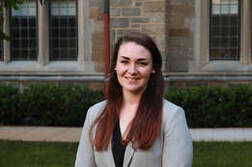
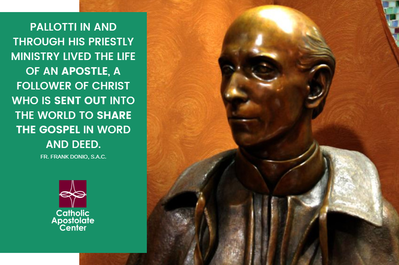
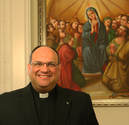
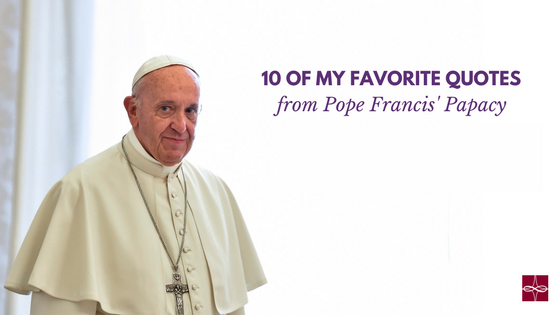

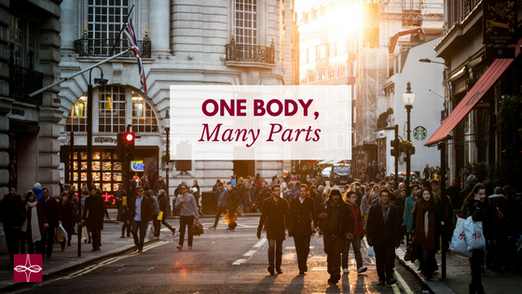


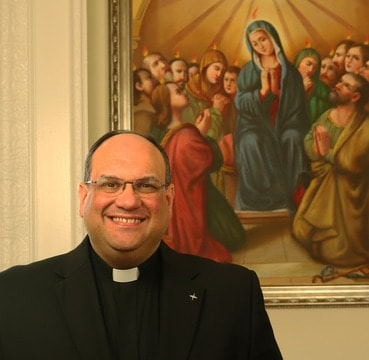
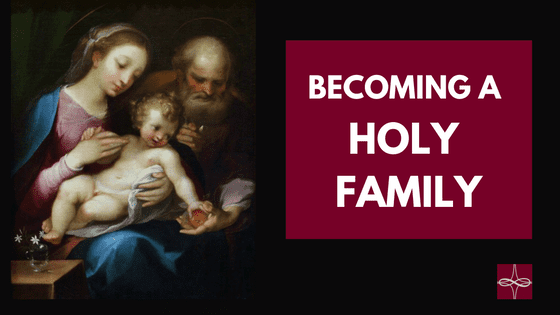

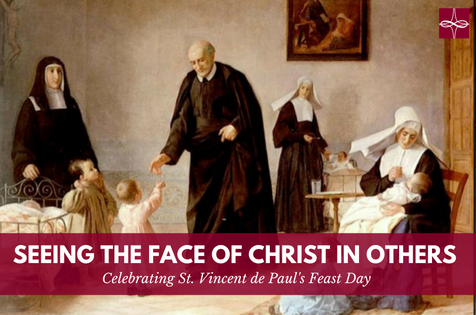

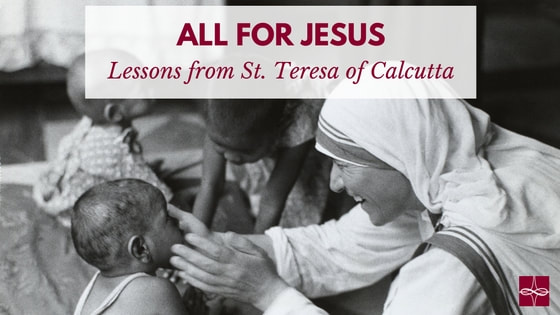


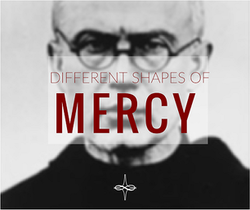

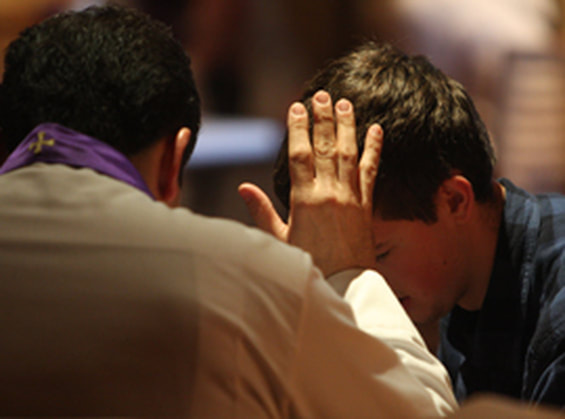


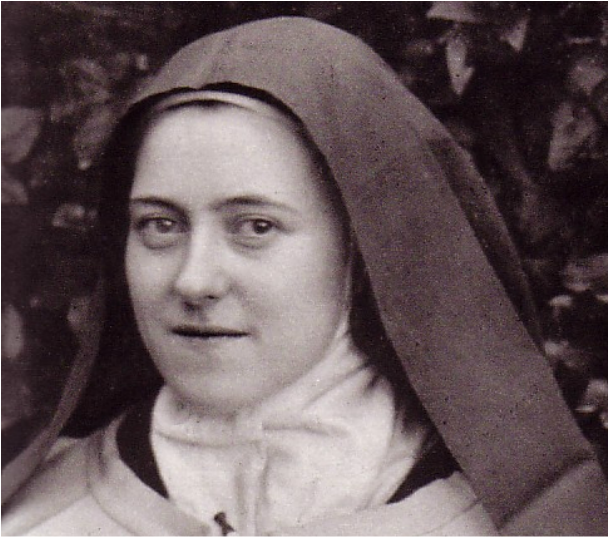
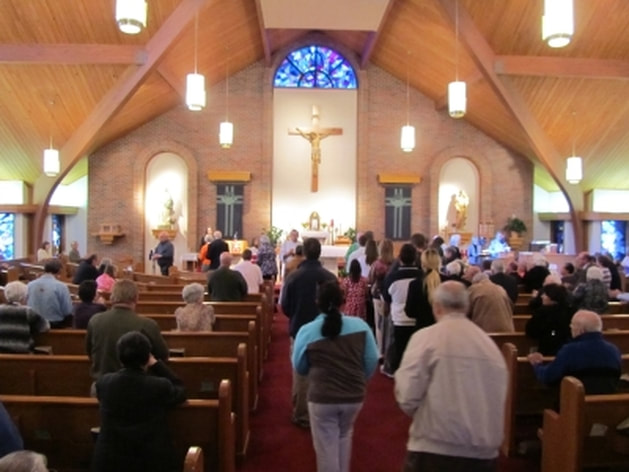
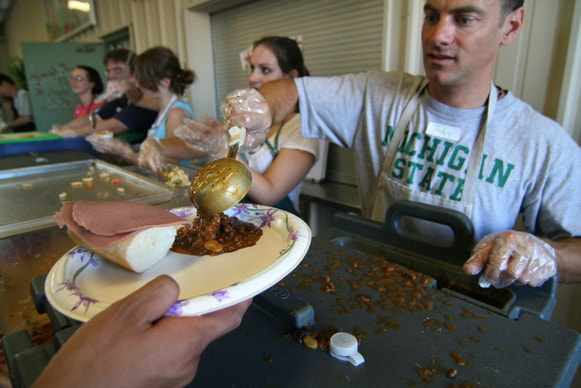
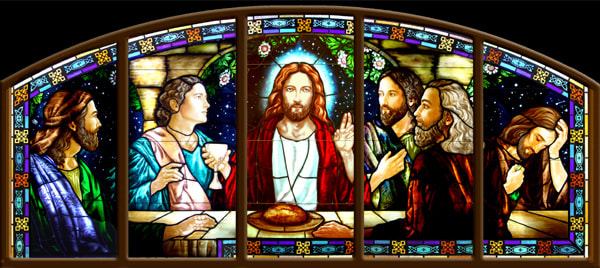
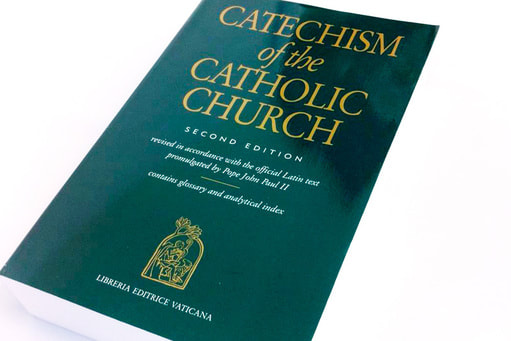
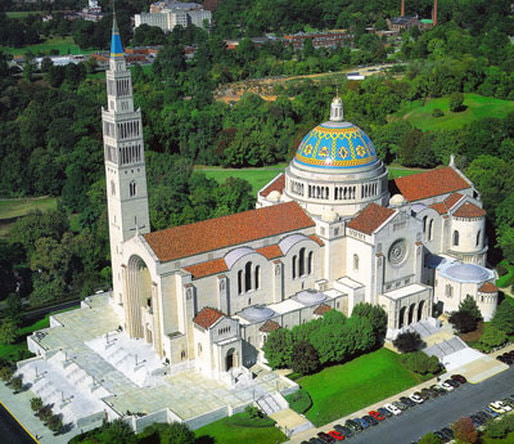
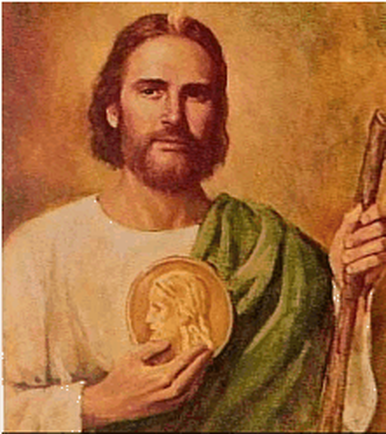
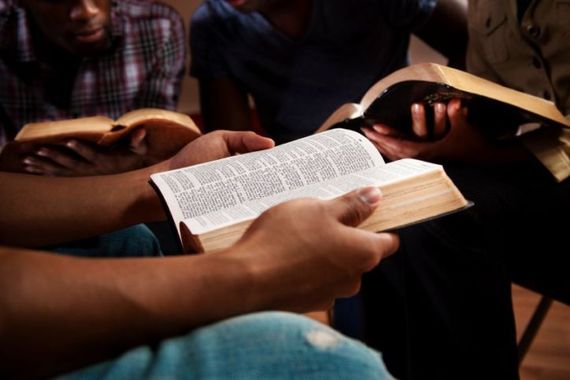


 RSS Feed
RSS Feed